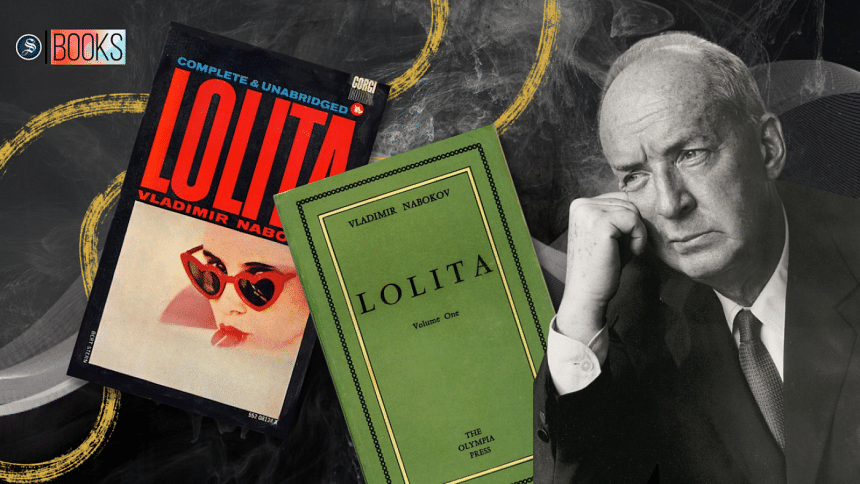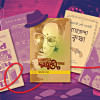The controversial legacy of Nabokov’s ‘Lolita’

It's been over 68 years since Vladimir Nabokov's polémique novel Lolita (Olympia Press, 1955) found its first readers and critics. The reception of the book at that time was as complex and divisive as its legacy. Countless debates have taken place regarding its censorship since then. Instances of claims by critics and readers saying Nabokov glorified paedophilia and justified Humbert's character is neither new nor sparse. My source of trouble lies in why, even after such a long time, the book is called repulsive by a large section of readers who think that it's worth cancelling Nabokov over.
Nabokov was a master of lyrical raptures. His prose never fails to entice the readers. And it is the same with Lolita. Nabokov wrote a psychological horror with a paedophilic narcissist as the protagonist, coated in pulchritudinous prose and stylistic prowess. He never meant it to be taken as a love story. He made a treacherous storytelling choice by making Humbert the narrator of the story—an unreliable narrator who is telling lies to hide his heinous crimes. Humbert, as an explanation for his sick behaviour, tells us the story of his childhood love whom he lost, which is why he finds children attractive. He manipulates, coerces, and rapes Dolores repeatedly as he travels through the country to avoid getting arrested.
Nabokov's intention was not to give erotic pleasure to his readers. The subversive interior of the novel and Humberts mind make for seductive storytelling, and while it may make readers forget about the disturbing acts for a fleeting moment, it refuses to give them any sort of comfort. The whole time, Humbert is trying to gaslight the readers into believing his victimhood and his characterisation of Dolores, a 12-year-old child, as a seductress and the very image of coquettishness. And he is not simply lying to the readers, he is also lying to himself. Nabokov here shows his brilliance by showing, if told in a lyrical manner with sickening word-play, how easy it is to believe the perpetrator. At times, it feels as if Nabokov is satirising Humbert and the erotica genre of literature.
The preface of Lolita makes it very clear from the beginning that it's a letter Humbert has written in jail while pleading for mercy to the jury. The whole novel is thus narrated by him in order to portray himself as the helpless victim who fell prey to Lolita's charm and sexual advances. Roxana Robinson, in her essay "Against Lolita" (2015) notes, "If Nabokov mocks the trope of the erotic novel, he also mocks the reader who was secretly hoping to read an erotic novel cloaked in literal respectability."
The mastery of Nabokov has been shadowed by the aberrant cultural afterlife of Lolita. It has been portrayed as a "forbidden romance" which transgresses morality. Such gross misinterpretations must be owed to some of the publishers of the book and filmmaker Stanley Kubrick, who took it to task to show it as a complicated romance. A Vanity Fair quote accompanied some editions of the book on the cover, reading, "The only convincing love story of our century." Kubrick also presented Dolores in an over-sexualised manner with red lip gloss and a lollipop in her mouth. Instead of presenting the relationship of Humbert and Dolores as one of abuser and victim, it showed them as lovers where Humbert only suffers from contorted layers of morality and Dolores is a "nymphet". Such misreadings unanchored Nabokov's condemnation of paedophilia and created an entirely different cultural image of the novel altogether.
While the image of Lolita has been cemented as a seductive teenager in the cultural lexicon, there has been endless clarifications and discussions regarding the intentions of the author. It makes me deeply wonder why, despite this, there hasn't been a final consensus. While we can argue about "death of the author", to come to the conclusion that Nabokov is justifying paedophilia through Humbert's actions and no one should read this book goes beyond every level of absurdity.
Readers often look for relatability in the stories and characters they are reading but Nabokov doesn't give his readers that comfort or spoon feed them. Rather, he challenges them to eschew feeling compelled by Humbert's justification of his innocence and makes them feel guilty if they fail to do so. The point of the story relies on recognising the unreliability of the narrator. To miss that is to miss the entire message of Lolita.
Nawshin Flora is currently daydreaming about catching up to her never ending TBR list. Remind her to get enough sleep at [email protected].

 For all latest news, follow The Daily Star's Google News channel.
For all latest news, follow The Daily Star's Google News channel. 








Comments